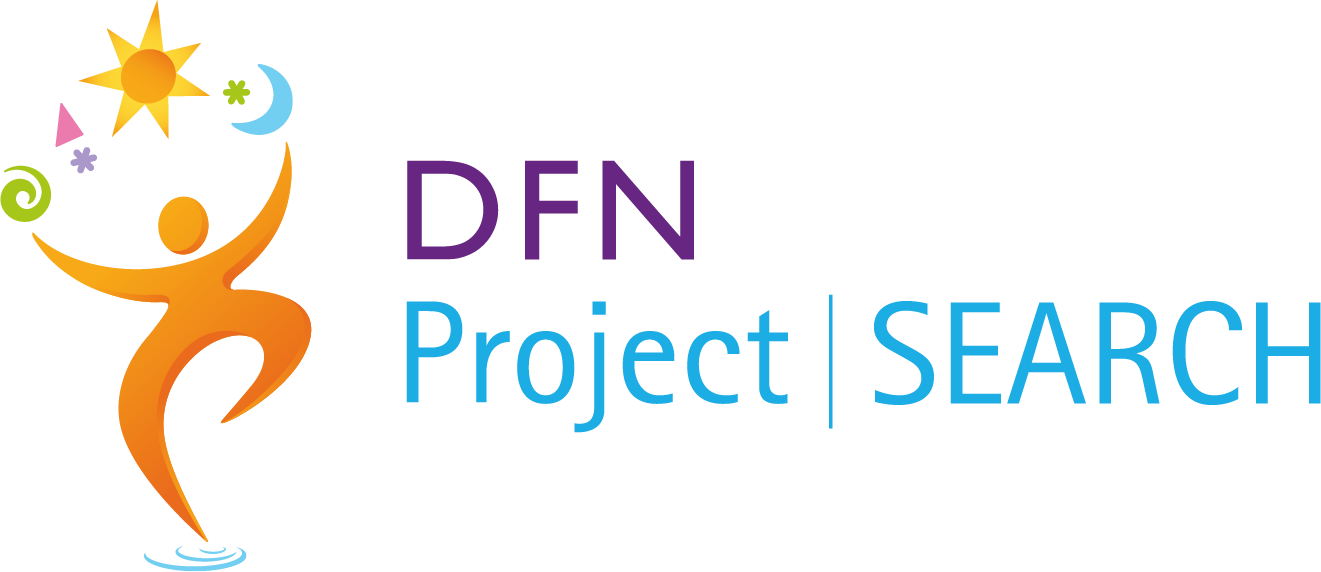Impact & Research

DFN Project SEARCH is based on the most successful transition to work programmes in the world and has been has recognised by the UK government as a model of good practice within the national learning disability strategy “Preparing for Adulthood pathways”.
With the largest data set in the UK, our evidence-based model challenges misconceptions and changes the way society views and enables young adults with a learning disability and autism to ensure that they reach their true and full potential.
See our Research and Data
DFN Project SEARCH Insight
As a data driven organisation, we continually evaluate our programme to ensure that every intern has a life changing opportunity. Our open data approach and commitment to continuous improvement meaning that we are unafraid of recognising potential shortcomings while using the most up to date research methods, such as machine learning and advanced statistical analysis, to understand and address them. As we are interested in the wellbeing of every person with a learning disability or autism spectrum condition or both (our interns or not), our findings and successful strategies are shared widely.
In this page you find our latest insights and a regularly updated list of resources on learning disability, autism, and employment and its benefits.
Learning Disability & Autism
With the right support, anyone can achieve great things. That is what our interns have been doing year after year. In the height of the pandemic, many of them took on key worker roles, contributing to lessen the burdens caused by the pandemic. In one single academic year they turn their often-unexplored potential into practical work skills that help them to start a career and further develop their social, emotional, and self-advocacy skills.
They enrich a workplace by bringing in new perspectives, be it in a clinical lab, a museum, a restaurant, or a home care.
The high employment rate of young adults with a learning disability or autism spectrum condition or both in our programme challenges societal prejudice and stigmas.

Employment

Research shows that the benefits of paid work are transformational, enabling young adults with a learning disability or autism spectrum condition or both to feel valued, integrate with their community and achieve financial, emotional, and social independence.
When in paid employment, they not only benefit themselves and their families but could save the Treasury billions of pounds as early employment develops skills and experience that will help them to continue employed throughout their life, dispensing with Universal Credit.
In addition to this, it is estimated that each young person with a learning disability employed could save on average £14,000 per year for local authorities in the form of special schools’ fees. Interns can be as young as 17 when they start the programme, and their outcomes are at least as high as those of older interns.
When in paid employment, people with a learning disability do not need to use the health system as often. Employment is good for our health!

Health
People with a learning disability have a life expectancy of 17 years (for females) and 14 years (for males) lower than those without a learning disability in the UK, with a number of deaths being premature and preventable.
This dreadful reality is unacceptable. DFN Project SEARCH is committed to improve the quality of life of young adults with a learning disability or autism spectrum condition
Myth
People with a learning disability are less productive than those without disabilities.
Fact
Compelling evidence tell us that people with a disability (including a learning disability) perform as well as, or better than, other employees.
Myth
People with a learning disability are more likely to be absent
Fact
A comprehensive study showed that they take less sick leave, are more punctual and stay longer in the job.
Myth
People with a learning disability negatively impact staff morale
Fact
Right the opposite. Workers with a learning disability contribute to social connectedness, co-worker partnerships and improved attitudes in the company
Myth
It is more expensive to recruit people with a learning disability
Fact
Even when there is an extra cost in recruitment, lower job turnover and absences offset them.
Myth
People with a learning disability do not have work skills
Fact
DFN Project SEARCH interns are a great example of how wrong this is! Research shows that if anything prejudice and lack of opportunity prevent people with a disability from using their skills.
Got a question or something else that you think we could help you with, get in touch with us today.
